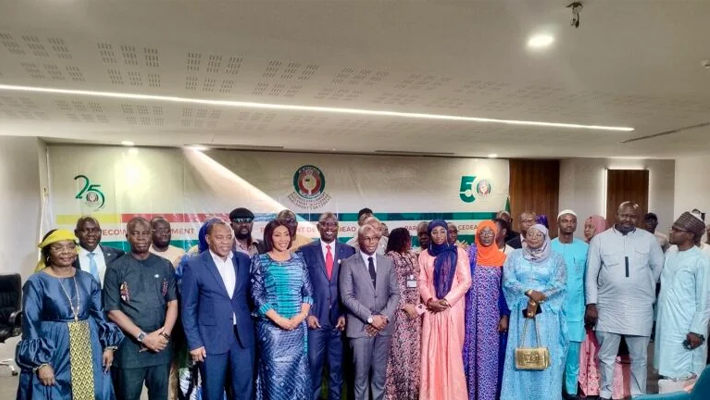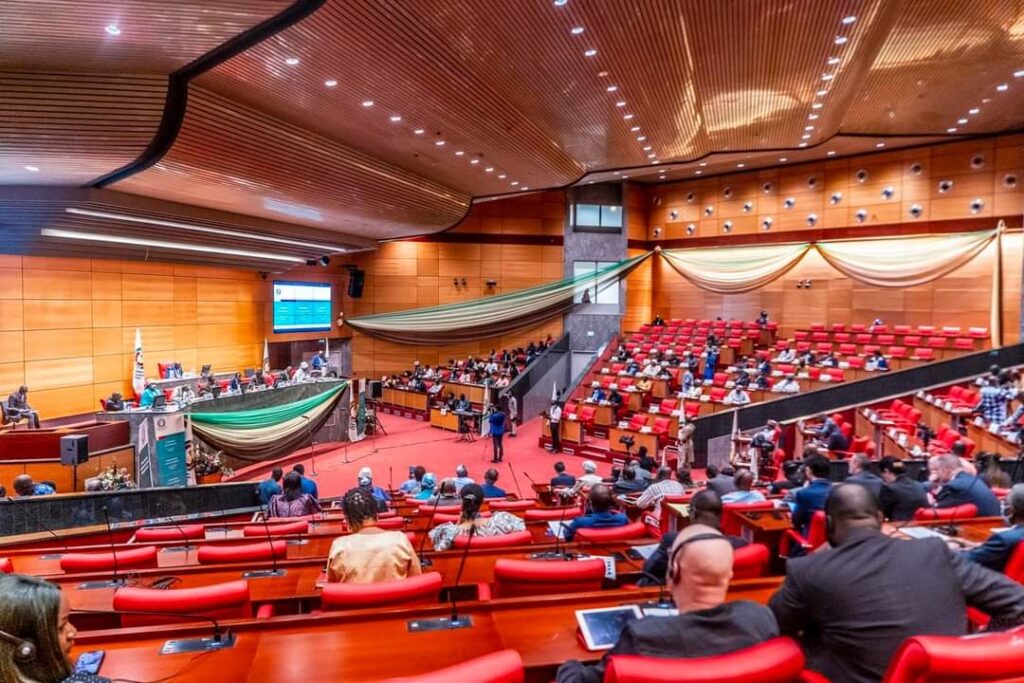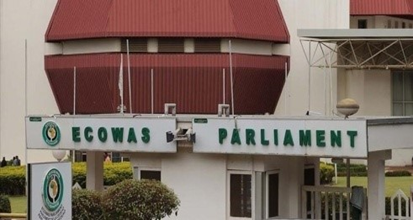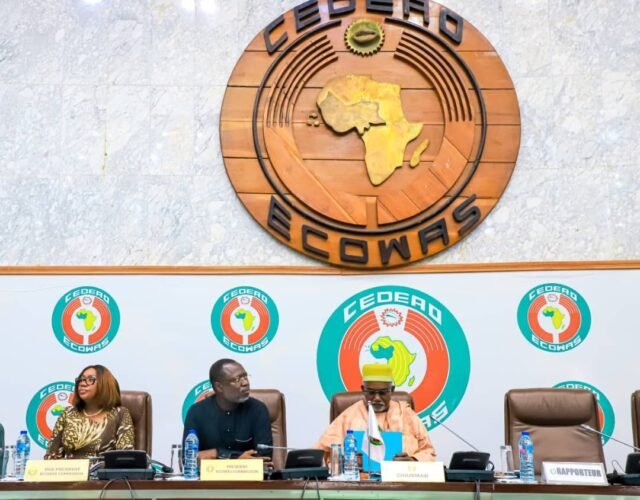The ECOWAS Parliament is taking decisive steps to harness the transformative potential of artificial intelligence by advocating for a comprehensive framework that integrates AI regulation and educational reform across West Africa. This dual-pronged initiative aims to build a secure legal foundation for emerging AI technologies while equipping future legal professionals with the knowledge and skills to navigate the digital age.
Table of Contents
Charting a Legal Framework for AI
Over the past year, ECOWAS has accelerated its commitment to shaping robust policies and legal infrastructure around the digital economy. In late August 2024, the ECOWAS Commission issued a call for expressions of interest to support the finalisation of a legal and regulatory framework governing the region’s digital economy. Through funding from the World Bank’s Western Africa Regional Digital Integration Program (WARDIP), the objective is to update legislation and harmonise contributions from all member states to reflect the dynamic nature of the sector.
Complementing this effort, experts and stakeholders in Nigeria have underscored the urgency of professionalising AI policy. At the March 13, 2025, inaugural AI Awareness Day ceremony, there were emphatic calls for a national framework that includes ethical guidelines, clear priorities, and educational pathways to support AI innovation in higher education.
Nonetheless, adopting AI in legal systems requires a measured and culturally sensitive approach. Nigeria’s Chief Justice recently cautioned against uncritical integration of AI, highlighting the importance of preserving religious values, national customs, and contextual awareness in legal frameworks. These warnings underscore the delicate balance between innovation and cultural integrity as ECOWAS crafts its unified regional policies.

Empowering Lawyers Through Education
Equally significant is ECOWAS’s emphasis on educating legal professionals. In April 2025, Justice Edward Amoako Asante—the immediate past president of the ECOWAS Court of Justice—called for the inclusion of ECOWAS law in law school curricula across member states. He argued that building a generation of lawyers well-versed in regional legal instruments is crucial for reinforcing integration, human rights, and the enforceability of ECOWAS court rulings.
Justice Asante also highlighted ongoing modernisation efforts at the court, including the launch of an Electronic Case Management System (ECMS). The ECMS aims to improve access to justice via multilingual digital filing and case management—an essential infrastructure for a legal and judicial system increasingly influenced by digital innovations.
Parliament’s Roadmap: Education Meets Legislation
Building on earlier initiatives to modernise distance learning, the ECOWAS Parliament held a multi-committee session in Lomé (17–21 November 2024) to explore the role of ICT in remote education. The session proposed five strategic pillars: creating digital community plans, harmonising distance education policies, domesticating regional instruments, passing supportive laws, and promoting international commitments at national levels.
During the same session, another joint committee—covering political affairs, legal affairs, human rights, and ICT—met in Winneba, Ghana (27–30 July 2021). Led by Speaker Tunis, they stressed the imperative of harnessing technology to reinforce justice, counter extremism, and enhance election integrity. They also expressed concerns over digital risks, advocating for national and regional policies to support the secure administration of justice.
Together, these parliamentary efforts signal a coordinated approach that merges policy-making with educational reform, designed to support a durable AI ecosystem in the region.
Broadening the Conversation: Judicial and Regional Input
In December 2023, a UNESCO-led workshop convened 30 judges from Ghana, Liberia, and Sierra Leone to build awareness of AI’s implications for freedom of expression, judicial interpretation, and the rule of law. Judges welcomed the “Global Toolkit for Judicial Actors” and emphasized the importance of judicial officer training to keep pace with evolving digital tools.
Meanwhile, the continental dimension is expanding: following the African Union’s June 2024 session of ICT ministers, a landmark Continental AI Strategy and African Digital Compact were adopted. These set a roadmap for national AI readiness by focusing on human capital, research, regulation, and innovation infrastructure across Africa. ECOWAS’s regional policies are perfectly poised to align with and benefit from these broader, continent-wide ambitions.

Challenges & Opportunities Ahead
While the vision is bold, the region faces obstacles:
- Legislative alignment: Many ECOWAS countries still need to ratify and internalise legal instruments related to digital governance. For example, only Liberia and Sierra Leone have fully ratified key ECOWAS protocols around justice and supplementary laws, as Justice Asante noted.
- Cultural sensitivity: Legal integration must respect the diverse religious and traditional contexts within member states, as emphasised by Nigeria’s judiciary.
- Skill gaps: Effective implementation depends on training—not only of judges and parliamentarians, but also of technologists and educators in ethics, compliance, and digital literacy.
Nevertheless, recent developments—like the UNESCO and ECOWAS judicial workshops, the ECMS rollout, and the WARDIP-aided legal harmonisation—highlight a genuine regional momentum towards an AI-ready legal architecture.
What Comes Next?
For ECOWAS’s vision to materialize, three strategic steps are essential:
- Finalise legislation: Build on the WARDIP initiative to draft harmonised laws that reflect both global AI policy standards and regional values.
- Integrate AI in education: Embed modules on digital law, AI ethics, and use-cases in law programs, and support practical experiences like moot court competitions.
- Expand institutional learning: Roll out digital training programs for judges, lawyers, policymakers, and civil servants, leveraging platforms like UNESCO’s toolkit and early AI-Awareness Days.
The coming months will be critical. As Justice Asante’s proactive reforms and ECOWAS’s legal modernisation efforts illustrate, the region is laying down both the educational groundwork and the legislative backbone needed to support AI responsibly.

Conclusion: A Connected Future for West Africa
Through strategic advocacy and action, the ECOWAS Parliament is orchestrating a comprehensive response to the rise of AI, one that interlinks legal reform and pedagogical innovation. By weaving AI awareness into laws, court updates, and academic programs, ECOWAS paves the way for a future where digital transformation enhances governance, justice, and integration.
The ECOWAS AI legal education framework is emerging not as a distant aspiration but as an actionable agenda. With greater coherence, collaboration, and capacity-building, West Africa stands poised to lead in shaping an AI-literate, legally grounded, and culturally shaped digital future.
Join Our Social Media Channels:
WhatsApp: NaijaEyes
Facebook: NaijaEyes
Twitter: NaijaEyes
Instagram: NaijaEyes
TikTok: NaijaEyes








































